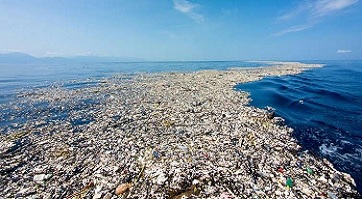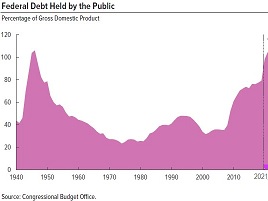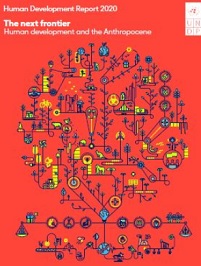Since the beginning of the industrial age, man has created over 100,000 unnatural chemical compounds, spewing or spilling them into the air we breathe, the soil our plants are grown in, and the water we drink. These chemicals enter the plants and the system of animals who ingested them and when we eat meat or fish, and even some vegetables, it goes into our system.
In addition, man has contributed and is contributing to the disaster with the increased radiation to our environment from all nuclear bomb tests and nuclear plant disasters, with microwave radiation, with thousands of medications which the body recognizes as toxins, with fuel emissions, with pesticides, insecticides and a world of household chemicals and with processed foods containing harmful additives, among other things, plus the humongous use of plastic products.
The October issue of Consumer Reports (CR) reveals the horrendous "plastic legacy" we are leaving to future generations; an inheritance that they will not be able to get rid of due to its insidious characteristics. In addition to the world-wide contamination that is causing, the major problem is that plastic products take vast amounts of time to breakdown. It takes plastics an average of over 500 years to degrade and a huge portion turns into "microplastic" in the process of degradation; that is, it turns into myriads of tons of microscopic particles contaminating our food, the air and water. We eat  them, we drink them and we breathe them.
them, we drink them and we breathe them.
The microplastic polluting the seas and oceans are consumed by plankton which travels up the food chain and eventually is consumed by us. This is extremely harmful to us, as microplastics contain chemicals such as BPA that interfere with our hormonal regulation and DEHP which is carcinogenic. And the body has no way of getting rid of them. In addition, marine life mistakenly consumes plastics for food, which causes these products to stay in their stomach invariably long periods of time as they are not biodegradable or digestible. Consequently, these marine animals starve to death with them being unable to consume enough food with their stomachs full of plastics, reducing fish and other marine food stocks.
According to the CR magazine, we are talking of about 5,000,000,000,000 plastic bags per year (over 5 trillion), over 30 billion plastic bottles that find their way to the ocean per year, some 160 million disposable razors used just in the United States (the overall number for the whole world is not known), etc., etc.
- Hits: 4946
 La deuda nacional de Estados Unidos ha sobrepasado ya los 28,7 trillones de dólares (billones en español), lo cual equivale a más de 227 mil dólares por cada contribuyente. Para colmo, el déficit presupuestario superará este año con creces todos los records anteriores (incluso los de tiempos de guerra) por un total de casi 3,2 trillones de dólares, lo cual hará que suba considerablemente el nivel de la deuda. Este déficit representa alrededor del 40% del presupuesto federal, el cual debería reducirse en esa cantidad para equilibrarlo. Por el contrario, se están pasando leyes que añaden gastos por más y más trillones de dólares que el país NO TIENE. Esto significa que el Tesoro deberá expedir más dinero y más instrumentos de deuda, a la vez que idea nuevas fuentes de ingresos impositivos, como ahora se está barajando el de cobrar impuestos a los automóviles según el millaje que recorran cada año.
La deuda nacional de Estados Unidos ha sobrepasado ya los 28,7 trillones de dólares (billones en español), lo cual equivale a más de 227 mil dólares por cada contribuyente. Para colmo, el déficit presupuestario superará este año con creces todos los records anteriores (incluso los de tiempos de guerra) por un total de casi 3,2 trillones de dólares, lo cual hará que suba considerablemente el nivel de la deuda. Este déficit representa alrededor del 40% del presupuesto federal, el cual debería reducirse en esa cantidad para equilibrarlo. Por el contrario, se están pasando leyes que añaden gastos por más y más trillones de dólares que el país NO TIENE. Esto significa que el Tesoro deberá expedir más dinero y más instrumentos de deuda, a la vez que idea nuevas fuentes de ingresos impositivos, como ahora se está barajando el de cobrar impuestos a los automóviles según el millaje que recorran cada año. trillones de dólares que se van sumando a una enorme deuda que le iremos dejando a nuestros hijos, nietos y bisnietos, y que ya nos está afectando con la devaluación del poder adquisitivo del dólar y la resultante inflación.
trillones de dólares que se van sumando a una enorme deuda que le iremos dejando a nuestros hijos, nietos y bisnietos, y que ya nos está afectando con la devaluación del poder adquisitivo del dólar y la resultante inflación. investigación –como el reciente Informe sobre Desarrollo Humano de 2020–, para los cuales, con frecuencia, se ven obligados a depender de los datos que proporciona el gobierno de países que no son democráticos y suelen impedir u obstaculizar cualquier intento de investigación para comprobar la validez de los datos recibidos.
investigación –como el reciente Informe sobre Desarrollo Humano de 2020–, para los cuales, con frecuencia, se ven obligados a depender de los datos que proporciona el gobierno de países que no son democráticos y suelen impedir u obstaculizar cualquier intento de investigación para comprobar la validez de los datos recibidos. Tech") están introduciendo limitaciones y trabas para restringir severamente o incluso erradicar opiniones que califican de conservadoras. Es asombroso que estas empresas multibillonarias, manejadas por opulentos empresarios y administradores a los que les sobra el dinero, intenten silenciar a quienes, precisamente, son los principales defensores de la propiedad privada y de la libre empresa. Cabe especular que ellos no tienen interés alguno en respetar la propiedad privada ni fomentar la libre empresa, por la sencilla razón de que se han dejado dominar por una ambición desmedida que los impulsa a aspirar a la formación de sistemas monopólicos y oligopólicos que sólo son posibles cuando hay gobiernos centralizados que proverbialmente derivan hacia la corrupción y permiten estos excesos del capitalismo.
Tech") están introduciendo limitaciones y trabas para restringir severamente o incluso erradicar opiniones que califican de conservadoras. Es asombroso que estas empresas multibillonarias, manejadas por opulentos empresarios y administradores a los que les sobra el dinero, intenten silenciar a quienes, precisamente, son los principales defensores de la propiedad privada y de la libre empresa. Cabe especular que ellos no tienen interés alguno en respetar la propiedad privada ni fomentar la libre empresa, por la sencilla razón de que se han dejado dominar por una ambición desmedida que los impulsa a aspirar a la formación de sistemas monopólicos y oligopólicos que sólo son posibles cuando hay gobiernos centralizados que proverbialmente derivan hacia la corrupción y permiten estos excesos del capitalismo.